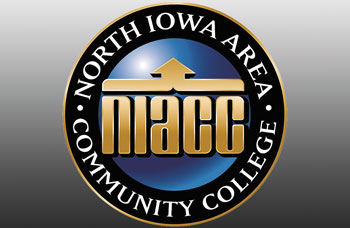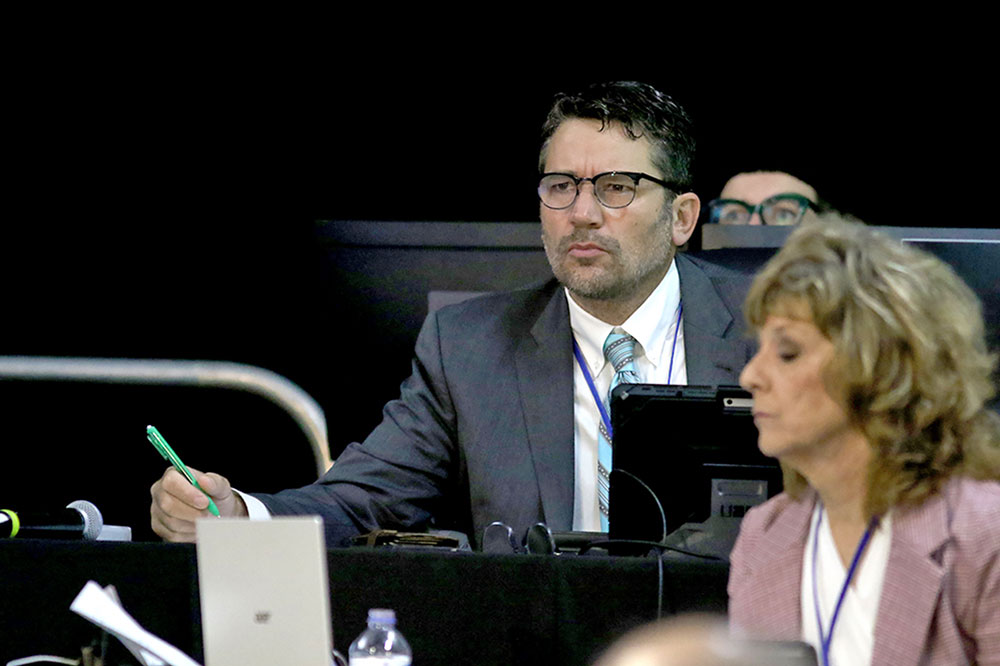Public health administrator seeks pay boost for staff, herself
By Bob Steenson, bsteenson@charlescitypress.com
2020 wasn’t an easy year for people who work in public health, and 2021 isn’t starting out any better.
“My nurses and my home care aides and my staff have endured a lot this past year,” said Gail Arjes, administrator of Floyd County Public Health and Home Care.
“They are taking calls that are not very nice calls. Not just one or two a day — several a day. And those calls continue,” she said.
In a post on its Facebook page on Tuesday evening, Floyd County Public Health/Home Health Care reported the state has sent out guidelines for COVID-19 vaccine priority populations in Phase 1B, which includes people age 75 and over, school staff, early childhood educators, child care workers, firefighters and law enforcement.
“There will be more details coming soon on where Phase 1B populations will receive their vaccines,” the notice said. “Vaccination of Phase 1B populations will begin sometime around the first of February, and will take several weeks to complete. This timeline is subject to change.”
“My staff has been out in the trenches the entire time, going into patients’ homes, caring for them regardless if they have COVID or not. We’re in the home wearing PPE — wearing masks, they’re wearing face shields every day. It’s not like we quit services because of this,” Arjes said, referring to the pandemic.
Arjes was making her annual budget presentation to the Floyd County Board of Supervisors Tuesday morning. It’s one of the annual rites of winter that all county officials and department heads go through as the supervisors work to set the county budget for the new fiscal year that will begin July 1.
The supervisors had given department heads and elected officials a guideline of 2.5% to build into their budgets for employee pay increases in the new fiscal year, although that amount could be adjusted by the supervisors later if they felt it necessary as they continued working on the budget.
When asked by Supervisor Roy Schwickerath if she had used the 2.5% figure for pay increases in her budget, Arjes said she had used a figure of 5%.
“My nurses and my staff need to be compensated for everything that they have done throughout this pandemic. It has not been easy, I can tell you that. It is a 24/7 job,” she said.
When Schwickerath asked her if the 5% increase included her salary, Arjes said it did.
“I’d invite you to come sit in my office a day, answer the phones for us if you want to kind of see what a day in the life of a public health staff member is right now. It’s not fun,” she said. “I do want you to know I’ve picked up a lot of extra duties, not just public health duties. I’ve been helping with some of the EMA duties.”
Supervisor Chair Linda Tjaden, who has worked closely with Arjes since Tjaden took over the vacant county emergency management director position until that job can be filled, didn’t disagree that it had been a tough year for public health.
But Tjaden said she was concerned that a larger pay increase doesn’t just compensate for past and current extra work, but builds that rate into the system for years ahead when things go back to normal, if there is a normal.
“This is not going away,” Arjes said. “COVID will be here forever. We don’t know going forward if it’s going to be a shot every year. Does public health have to give that shot every year, or is that going to be delegated to pharmacies, clinics? We don’t know.
“But either way, COVID is here for good, along with flu, along with everything else. That hazard will be here forever. My staff will be dealing with that forever, going forward,” Arjes said.
“I just want to make sure we’re looking at this in the right way,” Tjaden said, referring to the requested pay increase.
Arjes said that holding the COVID-19 vaccine clinics, including for the general public when that happens, possibly at the fairgrounds, will also require her staff’s time.
“It will be most of my staff. I’ll probably leave just one office staff in the office that day,” she said, adding that she has reached out to the Chautauqua Guest Homes and to Floyd County Medical Center to see if some of their staff would be available to help with vaccinations.
“People think we’re just going to get a ton of vaccine so they’ll be able to do everyone,” Arjes said. “Say they open it up to everyone 75 and older. We may only get 500 doses. We may only get 200 doses. I don’t know. So we’re going to have to come together as our group that has been meeting and prioritize … how are we going to break this down into who’s going to receive it?
“We get hundreds of calls (from people) wanting the vaccine. And it’s hard to tell them no,” she said.
Arjes said a plan being talked about federally is to release all the available doses now to reach as many people as possible with the first dose, instead of holding back half the doses for the required boost dose.
“If they release all this vaccine it’s going to create another nightmare for us,” she said. “Right now, when we give the first dose I’ve already accepted the boost dose from the state for that person, so the day they get that shot I’m giving them an appointment for their second shot. They know when to come. I’ll send a reminder email, reminder phone call to them to come in.
“If it’s all released at once we’re going to have a real challenge in how we are going to contact those people again and how those people will know what day we’re giving them their boost dose,” she said.
Returning again to the budget, Arjes said she wanted to try to plan for the expenses of the vaccine rollout. The county tax asking in the current fiscal year budget for her department is about $375,000 and her new budget asks for $391,000, about a 4.3% increase. The department also gets funding from other sources, including fees for services provided.
The supervisors haven’t made any official decisions on the county budget yet.








Social Share